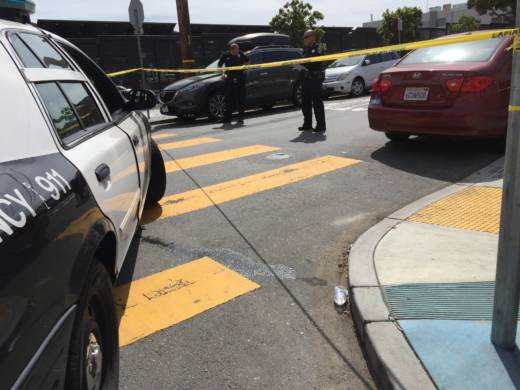Criticism over how the city handles police shooting cases hasn't landed only with the Police Department. The DA's office hasn't issued a charging decision in a fatal police shooting -- the final phase in the investigation -- in about two years. Advocates around the shooting death of Amilcar Perez Lopez plan to mark the two-year anniversary of his death this Sunday, with no charging decision yet made.
That decision is coming in "weeks, not months," Szabo said, but the DA's office has several times indicated that case would soon be finished in the two years since plainclothes officers shot Perez Lopez six times from behind.
Szabo said implementing the new Independent Investigations Bureau is "essential" in shortening the time it takes to issue a charging decision.
"Until recently, we did not have the resources to handle these immensely difficult cases," he said. "Prosecutors would be taken from other details who did not have experience and expertise in these types of complex investigations."
Police Officers Association attorney Gregg Adam said negotiations over the issue are scheduled to start next week, and the union hasn't seen specifics of the new protocols.
"My client has some concept that the DA is going to take over these investigations, but the practical, how it’s going to work, we really don’t have any idea," Adam said. "In 4½ months, the city hasn’t been able to produce much of anything by way of information for us to have any real idea as to how this is going to be handled, what the procedures are going to be, how it’s going to affect existing practices with how investigations occur, how it’s going to affect discipline. We’ve got a whole host of questions."
An SFPD spokesman said "the department is engaged in ongoing discussions with various entities" over the new protocols, which were drafted in "late 2016." The Police Department declined to provide a copy of the draft memorandum.
The Police Department and District Attorney's Office were still discussing the work of the DA's new unit as of Feb. 28, according to the city's Department of Human resources, which typically conducts labor negotiations on behalf of city departments.
"If the two departments reach an agreement that impacts the working conditions of POA members, meet and confer with POA will be necessary, but that hasn’t happened yet," Department of Human Resources Chief of Policy Susan Gard wrote in an emailed response. She added that meet and confer with the union representing DA investigators was completed earlier this year.
To retired ACLU attorney John Crew, who currently advocates for police accountability in San Francisco, forcing that agreement into negotiations is a tried-and-true tactic the union has used to stall police reform.
"I think this is predictable because this is what the POA has been doing," he said. "They have been extremely expansive in claiming they have the legal right to meet and confer on issues that they have no right to meet and confer on."
He referenced two recent major SFPD policy changes that dragged on for months in the black hole of negotiations with the union.
"There was no way that the body-camera policy needed to be stalled for six months. Same with use-of-force policy," Crew said. "This is a political strategy to slow down and delay."
The union and city reached agreement on the body-camera policy, but the city declared an impasse in negotiations over the department's new use-of-force rules, and immediately implemented them. The union sued, hoping to force the city to enter arbitration over the new policy's prohibition on the carotid -- or sleeper hold -- restraint, shooting at moving cars and the Police Commission's refusal to consider arming officers with Taser stun guns.
That civil case is ongoing, and it's scheduled for a hearing on Monday, Feb. 27.

